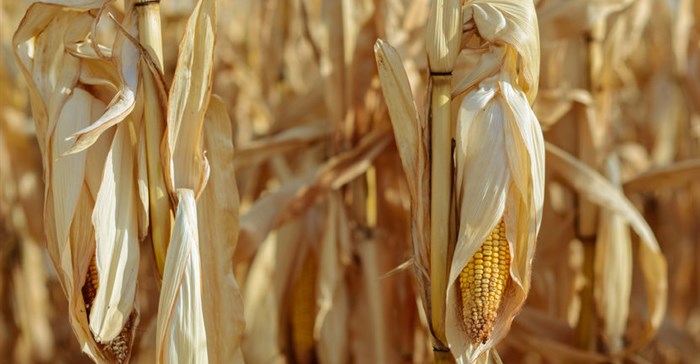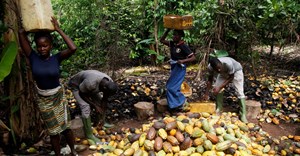New project helps African farmers address stresses in maize farming

The new project will develop new improved varieties and hybrids with resistance and tolerance to drought, low soil fertility, heat, diseases such as Maize Lethal Necrosis (MLN) and pests affecting a large target of maize production areas in SSA.
Reducing crop failure
“STMA will use modern breeding technologies that will confer the desired resistance to pests and diseases and tolerance to climatic stresses like drought and heat to benefit farmers within their socio-economic capabilities, that often dictate their access to important farm inputs like fertilizers and improved seed,” said Tsedeke Abate, project leader of STMA.
Over 35 million hectares of cultivated maize in SSA is rainfed. Climate change is heightening the intensity and frequency of drought in farmers’ fields. At the same time, maize productivity is further reduced by low fertility soils prevalent in most parts of SSA, yet the majority of smallholder farmers cannot afford the recommended amounts of nitrogen fertilizers. These, in addition to other stresses increase the risk of crop failure that negatively affects income, food security and nourishment of millions of smallholder farmers and their families.
STMA will draw from successes and lessons of the just concluded Drought Tolerant Maize for Africa (DTMA) and Improved Maize for African Soils (IMAS) projects, which successfully developed and deployed over 250 improved drought-tolerant and nitrogen-use efficient maize varieties benefiting more than 43 million people in the region. The new stress tolerant varieties and hybrids will increase maize productivity by 30–50% for smallholders in 12 countries in eastern (Ethiopia, Kenya, Tanzania, Uganda), southern (Malawi, South Africa, Zambia, Zimbabwe) and west Africa (Benin, Ghana, Mali, Nigeria).
Improved maize varieties
STMA is funded by the Bill & Melinda Gates Foundation (BMGF) and the United States Agency for International Development (USAID). The four-year project will put improved maize varieties in the hands of nearly five and a half million smallholder households by end of 2019. The project will also ensure women participation across the maize value chain from production to retail.
STMA will link up with national and regional initiatives to develop strategies that bridge the yield gap and dramatically increase maize productivity at smallholder farm levels. This continued collaboration with partners will enhance sustainable maize research and development systems in target countries through sustained variety release, deployment and adoption, which has thus far been insufficient in many SSA countries.
The International Institute of Tropical Agriculture is a key partner in the STMA project alongside very important national research organisations within the target countries, international institutions, small and medium seed companies and other private and public institutions.
Source: Africa Green Media

Africa Green Media aims to establish itself as a leading news company for the green industry. Set to be a global leader in connecting role players within the climate change, agriculture, water, food security, energy, recycling, pollution, green business, education, science & technology, natural resources and green living, sectors.
Go to: http://africagreenmedia.co.za/category/news/





















